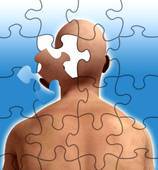
“Disrupted sleep appears to be associated with the build up of amyloid plaques—a hallmark marker of Alzheimer’s disease—in the brains of people without memory problems,” says Dr. Yo-El Ju, study leader at Washington University School of Medicine in St. Louis and a member of the American Academy of Neurology.
Researchers tested the sleep patterns of 100 people age 45 to 80 who weren’t suffering from dementia. Half of the group had a family history of Alzheimer’s disease. A device was placed on participants for two weeks to measure sleep. Researchers also analyzed sleep diaries and questionnaires.
Scientists discovered that 25% of participants had evidence of amyloid plaques, which can appear years before the symptoms of Alzheimer’s disease begin. The average time a person spent in bed during the study was about eight hours, but, due to short awakenings in the night, the average sleep time was 6 1/2 hours.
The study found that people who woke up more than five times per hour were more likely to have amyloid plaque build-up compared with people who didn’t wake up as frequently. The study also found that those people who slept “less efficiently” were more likely to have the markers of early-stage Alzheimer’s disease than those who slept more efficiently.




